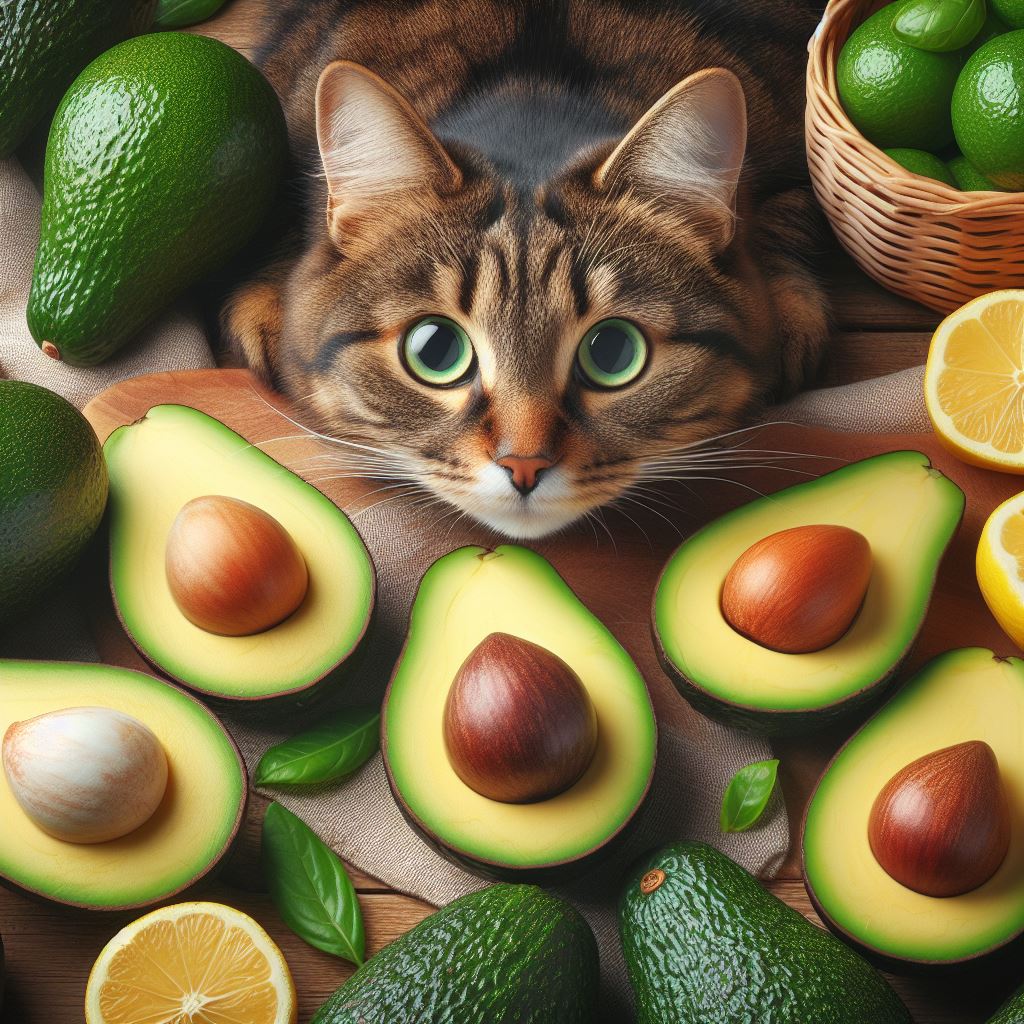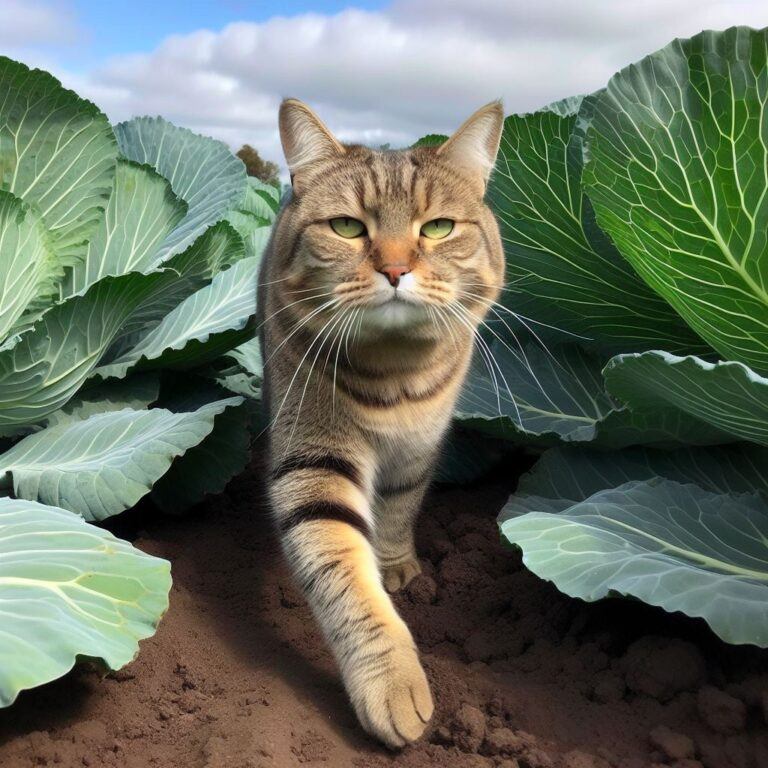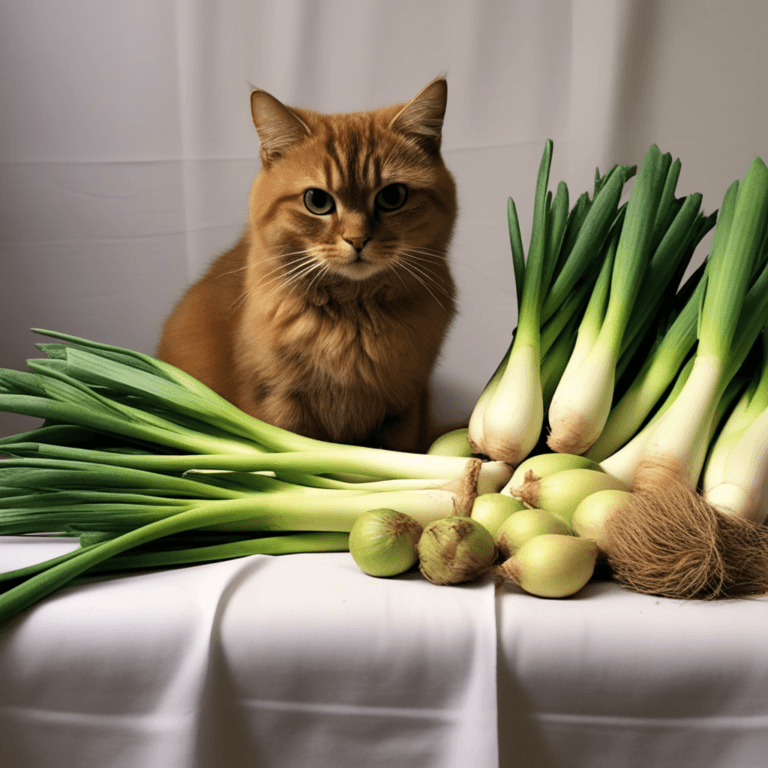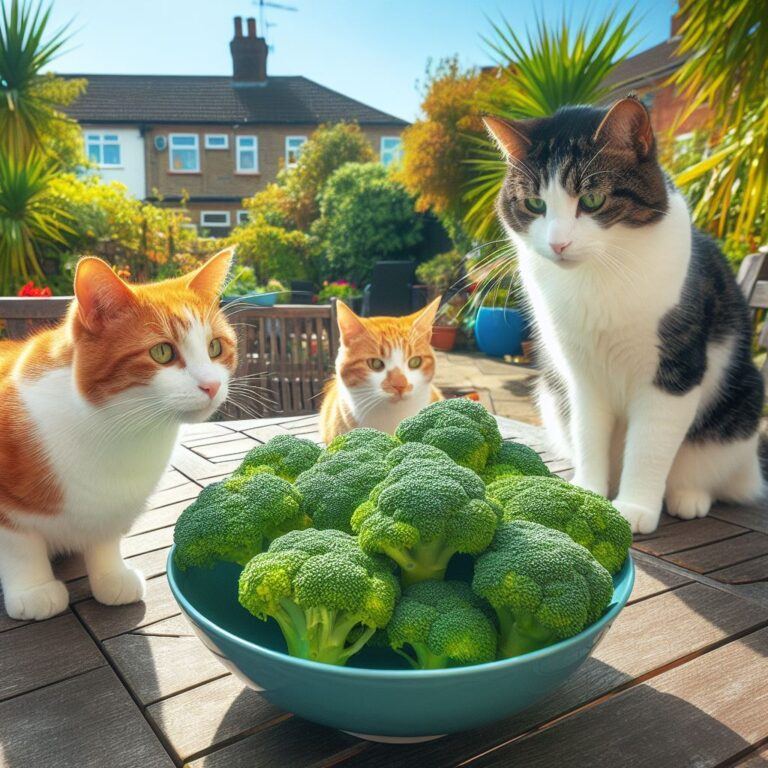Can Cats Safely Eat Avocado
Cats can indeed eat small amounts of avocado flesh without harm, but it’s not without risks. The flesh itself is generally safe, yet other parts of the avocado plant contain a toxin called persin that can be dangerous for pets.
Personally, I wouldn’t risk it with my cats, but I am a very cautious individual!
Despite the popularity of avocados, a common misconception suggests that avocados are entirely poisonous to cats.
While it’s true that persin, a fungicidal toxin found in the avocado plant, can cause health issues in some animals, the flesh of the avocado has relatively low levels of this compound. This means, in moderation, the pulpy part could be non-toxic to your furry friend.
It’s imperative to distinguish the safe parts of the fruit from the harmful ones. Cats should never have access to the avocado pit, skin, or the plant’s leaves, as these contain higher persin concentrations.
When it comes to the creamy flesh, think of it as an occasional treat rather than a diet staple.
Concerning its nutritional profile, avocado is rich in vitamins A, C, E, and B6, along with fiber and healthy fats, which might sound beneficial. However, your cat’s nutritional needs are distinct, and what works for humans doesn’t always translate to feline health.
So, moderation and proper portioning are key when considering this as an infrequent treat.
Understanding the Risks: What Cat Owners Should Know
While a small amount of avocado flesh may not harm your cat, it’s crucial to be aware of the risks associated with other parts of the fruit. The pit, skin, and leaves of the avocado contain persin, a fungicidal toxin that can cause health problems in many animals.
Although cats are more resistant to persin than some other animals, it’s better to be safe and avoid exposing them to it entirely.
If a cat ingests persin, it might experience symptoms such as vomiting, diarrhea, and possibly congestion, difficulty breathing, or fluid accumulation around the heart. If you notice any of these symptoms after your cat has had contact with avocado, immediate veterinary care is vital.
I’ve sought out expert opinions, and the consensus among veterinarians is clear: the risks outweigh the potential benefits when it comes to avocados and cats. Especially since cats require high-protein, low-fat diets that don’t align with the nutritional profile of avocados.
For those who still consider offering avocado to their cat, do so sparingly. The recommended amount would be a small piece of avocado flesh, no larger than a dice, to minimize any potential risk.
That said, alternatives exist that are much safer and offer similar nutritional benefits without the dangers.
Healthier Alternatives to Avocado for Your Feline Friend
If you’re considering avocado for its health benefits, plenty of safer options exist. Cats thrive on a balanced diet tailored to their specific needs. Instead of avocado, which carries risks, try offering cat-safe treats like cooked fish, beef or chicken.
Remember, the cornerstone of your cat’s diet should be a high-quality, nutritionally complete cat food. Treats can be a nice addition, but they should never be a staple.
Suppose you’re looking to enhance your pet’s diet further. In that case, professionally formulated supplements can be beneficial. Still, it’s crucial to discuss any new additions with your veterinarian to ensure they’re suitable for your cat’s unique health status.
Ultimately, the best approach to your cat’s diet is one that prioritizes their health and well-being. Pay close attention to their behavior and physical condition, and if you have any concerns, always reach out to a professional.
After all, nothing is more important than keeping your furry companion happy, healthy, and safe.







